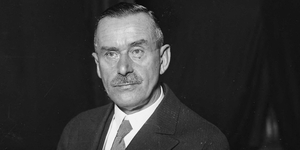"Look where Viktor Orban sits in Parliament. He's largely surrounded by Christian Democrats - you can see which party is closer to him," a Christian Democrat MP told HVG, responding to index.hu's claim that Orban feels less and less at home within Fidesz and is considering escaping to the Christian Democratic People's Party (KDNP). But our source nonetheless things this is a long-term prospect, which will only happen after the battles with Ferenc Gyurcsany, the Socialist prime minister, have been dealt with. Nonetheless, our source continued, it has long been felt that it would be better if Orban, nowadays more a Christian Democrat at heart, and his followers moved over to the KDNP. The smaller party would benefit enormously, but Fidesz, which is becoming a national liberal party, would also find it easier to attract votes.
It took an anonymously penned article to bring all this speculation to the surfcace. The conservative daily Magyar Nemzet seems to have wanted to move the issue - if there is an issue - into the public domain. On Monday, the paper published a long essay about a supposed anti-Orban conspiracy. 'Zsolt Horvath' wrote in his speculative article, that an alternative Fidesz without Orban was being planned, and that Maria Schmidt, the director of the House of Terror Museum, was behind the move, working alongside wealthy individuals like Kristof Nobilis, owner of index.hu, and Zoltan Speder, until recently a director at OTP. Janos Ader would lead the new political grouping, it was claimed.
The article was not published in an anti-Fidesz paper. Magyar Nemzet is a cheerleader for Fidesz and especially for Viktor Orban, the party's leader. So whose interests did the article serve? HVG has evidence that some of Fidesz's business backers wanted to signal to Orban that they would stop financing the party if the party acquired a new political line and a new leadership. In this, the article resembles one written last year which, despite being signed by a "student", revealed extensive knowledge of internal party affairs.
This article attacked Zoltan Pokorni as the leader of a liberal conspiracy within the party. In this interpretation, the battle is about Lajos Simicska's and Maria Schmidt's battle to maintain their economic influence. They run the Mahir media and advertising agency and are joint owners of the HUF23bn real estate company Budapest Ingatlan.
The other theory is that the manoeuvrings are about unseating Orban, who is running for re-election as party leader in the spring. Orban wants people to declare their allegiance, allowing him to measure his level of support. He has employed such devices in the past. Fidesz's occasional petition campaigns are another way of measuring the commitment levels of the party's core supporters. But party politicians were placed under similar pressure in the autumn when he announced daily rallies to be held on Kossuth ter, forcing Ader to climb up to the podium and give a speech.
Magyar Nemzet's 'revelation' can hardly have been inconvenient to Orban, whether he knew about it or not. It allows him to establish whether there is anybody within the party or its base who is looking to follow an independent line and to nip any such attempts in the bud.
HVG has heard from several sources that the absolute mutual confidence that characterised the party leadership in the past has evaporated.
There are paranoid fears, with people asking old friends to take their mobile telephones out of the room for fear of being bugged.
Schmidt has denied the claims. She belongs to a group of intellectuals that was always ready to defend Orban when allegations were made against him, but were nonetheless prepared to voice criticisms of the party leader. She recently wrote an essay in the liberal daily Nepszabadsag in which she quoted Orwell's Animal Farm, saying that political reality meant "Farmer Jones" would never return. It is an open secret that the House of Terror serves as a kind of think tank for Fidesz, hosting a range of specialists who analyse current political developments. It is not clear what becomes of statements made in these political salons. Participants regard these conversations as pure intellectual discourse: it is only a coincidence that Fidesz leaders have been invited on occasion, they say. In an interview with the conservative weekly Heti Valasz last year, Schmidt said it was pure coincidence that Orban had never had time to attend any of these conferences.
Despite the tension, there is a clear belief within Fidesz that setting up a new party would be political suicide, and that it is impossible to get rid of Orban in the short or medium term. The party is heavily in debt, and Orban's departure would cause its sources of funding to dry up. Further, Fidesz would lose out on donations made by foundations that are close to Orban, though he himself would be able to take some of this capital with him to the KDNP. It is also clear that though Fidesz is currently the eternal runner-up in parliamentary elections, coming second is still better than coming third or fourth.
JÁNOS DOBSZAY














